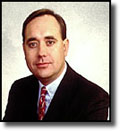
|
Scottish National Party
The Scottish National Party campaigns for an independent Scotland. It seeks to switch the focus of economic debate away from how Scotland fares as a region of the UK and towards what it could achieve as an independent nation, and as an individual member state in Europe. An independent Scotland under the SNP would have a written constitution, put to the Scottish people in a referendum. The Scottish Parliament would be single chamber and comprise 200 MPs. The Party's History The SNP was founded in 1934 and won its first parliamentary seat in 1945, when Dr Robert McIntyre won the Motherwell by-election. The party has had continuous parliamentary representation since 1967, when Winnie Ewing won the Hamilton by-election. In 1974 it gained 7 and then 11 seats in the February and October elections respectively. In 1979, a referendum on devolution was held, but in May, the new Conservative government repealed the Referendum on the Scotland Act, thereby shelving further debate on the matter for the foreseeable future. Nevertheless, Winnie Ewing was elected as an MEP for the Highlands & Islands in June the same year. In the 1983 and 1987 general elections, the Conservatives' grasp on power in Scotland began to diminish. At the SNP's 1988 conference, the party adopted two campaigns of peaceful, civil disobedience, including protests against the poll tax and the dumping of nuclear waste in Scotland. The SNP takes credit for helping to undermine Mrs Thatcher's leadership, by endorsing non-payment of the poll tax which she had introduced in Scotland before the rest of the UK. In 1990, after 11 years as SNP leader, Gordon Wilson decided to step down. The SNP's current leader, Alex Salmond, was elected at the 1990 party conference, having first won his seat in Banff & Buchan in the 1987 election. The same year, Dick Douglas, Labour MP for Dunfermline West, defected to the SNP, boosting the party's Parliamentary representation to five. It is arguable that in the 1992 general election, predictions of a Labour victory removed some support from the SNP, because the electorate north of the border expected a new Labour government to legislate for a devolved Scottish Parliament. At the 1992 election, the SNP won 21.5% of the vote in Scotland (7.5% more than in 1987), and three seats. Following a by-election victory in 1995, the party had four representatives in Westminster:
There are two SNP MEPs:
Recent Election Results The SNP enjoyed good results at the two Scottish by-elections since the 1992 general election. In 1994, the SNP's sixtieth anniversary year, they became Scotland's second party. In local government elections, they secured 27% of the vote and 73 regional seats. Even in the Monklands East by-election in June 1994, which followed the death of Labour leader John Smith, the Scottish Nationalists won 44.95% of the vote - almost 27% higher than the SNP's result at the 1992 general election - a swing of 19.22% from Labour to the SNP. At the 1995 local elections, the SNP won control of 3 councils in Scotland, (Angus, Moray, Perthshire & Kinross), and won 182 seats in all, with a 26% share of the vote - second to Labour. In May 1995 Roseanna Cunningham won the Perth and Kinross seat with 40.4% of the vote after the death of the sitting Conservative MP, Sir Nicholas Fairbairn. This represented an 11.5% swing from Con to SNP. In the run-up to the 1997 election, the Conservative and Labour parties kept devolution high on the political agenda by continuing to wrangle over a Scottish referendum. Meanwhile, with recent regional success and openly declared support from film star Sean Connery, the SNP prepared to consolidate its rapidly expanding base of support in Scotland. On May 1, the Scottish electorate re-elected the three Scottish National MPs who had been previously elected in 1992. In addition, the SNP won 3 more seats: Roseanna Cunningham, the 1995 Perth by-election winner, was returned to Parliament; and two new MPs, John Swinney and Alasdair Morgan, gained Tayside North and Galloway & Upper Nithsdale from the Conservatives with swings of 8.4% and 9.5% respectively. Overall, the SNP took 22.1% share of the total Scottish vote, or 2.0% of all votes cast in Great Britain. Party Headquarters:
6 North Charlotte Street Tel: 0131 226 3661
Scottish National Party Home Page
|
Diana, Princess of Wales, 1961-1997
Conference 97
Devolution
The Archive
News |
Issues |
Background |
Parties |
Analysis |
TV/Radio/Web
Interactive |
Forum |
Live |
About This Site
News |
Issues |
Background |
Parties |
Analysis |
TV/Radio/Web
Interactive |
Forum |
Live |
About This Site
© BBC 1997 |
politics97@bbc.co.uk |
